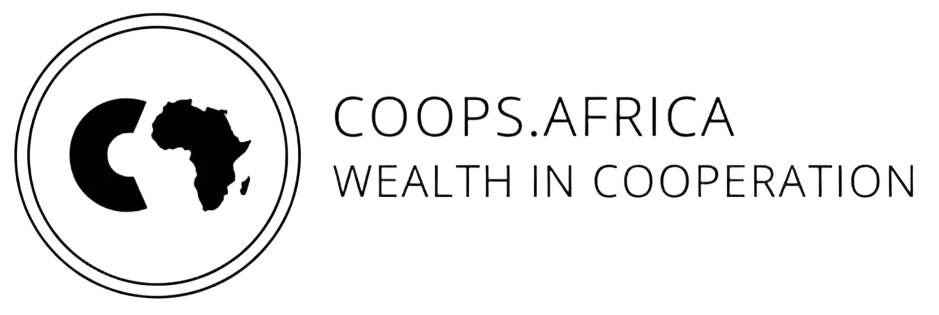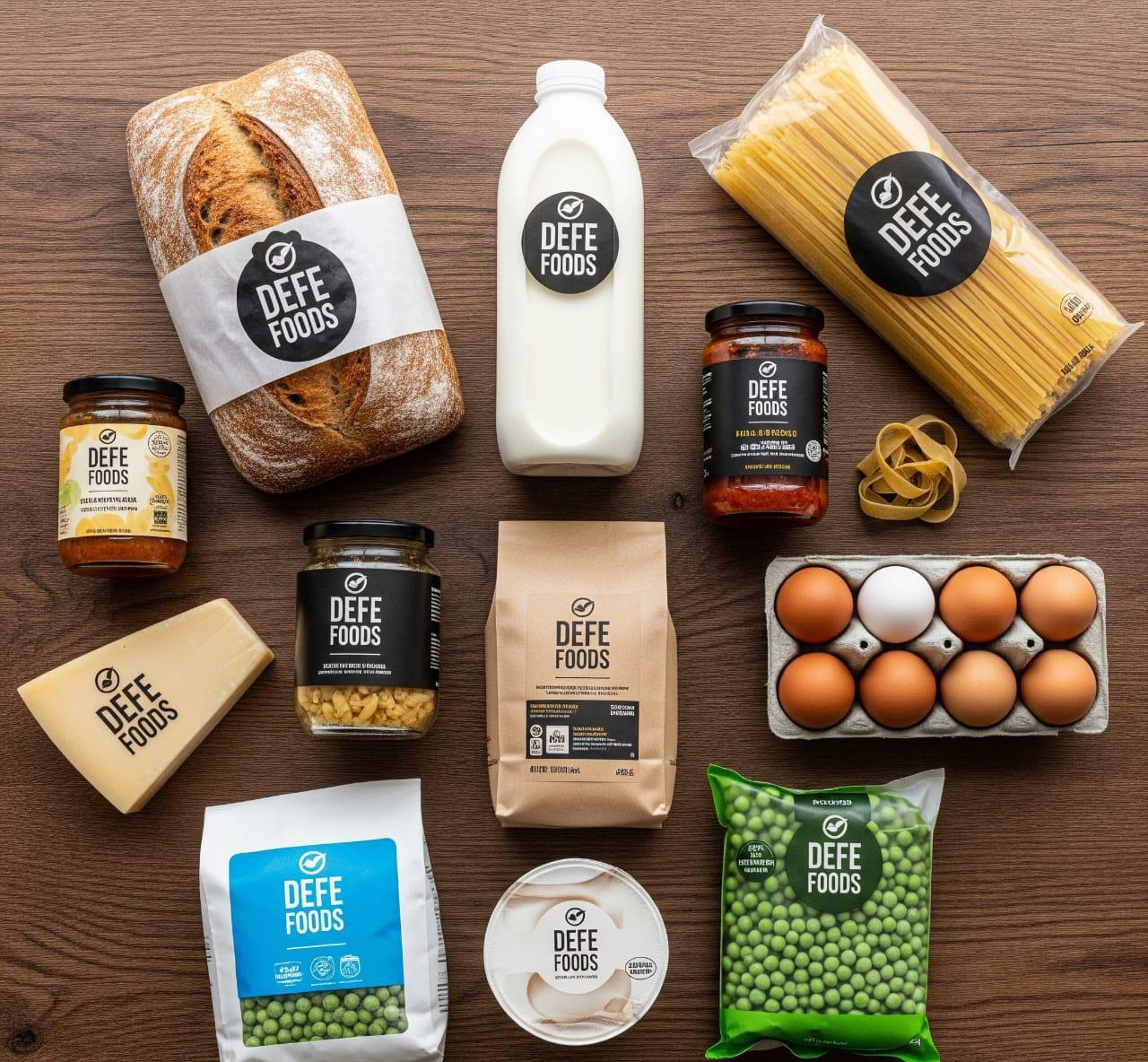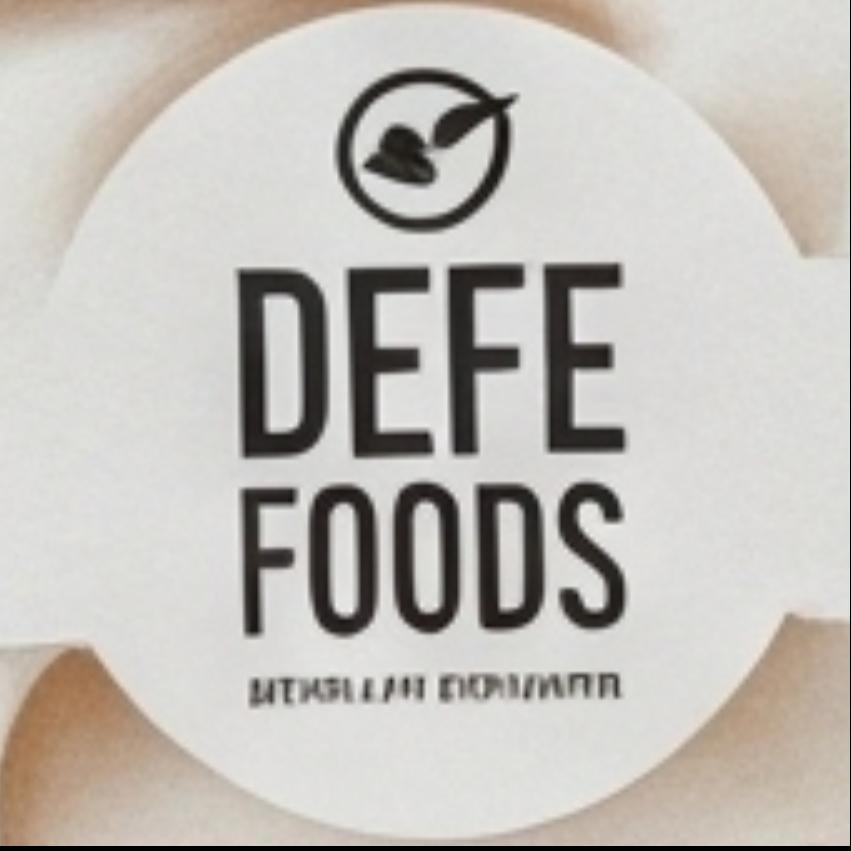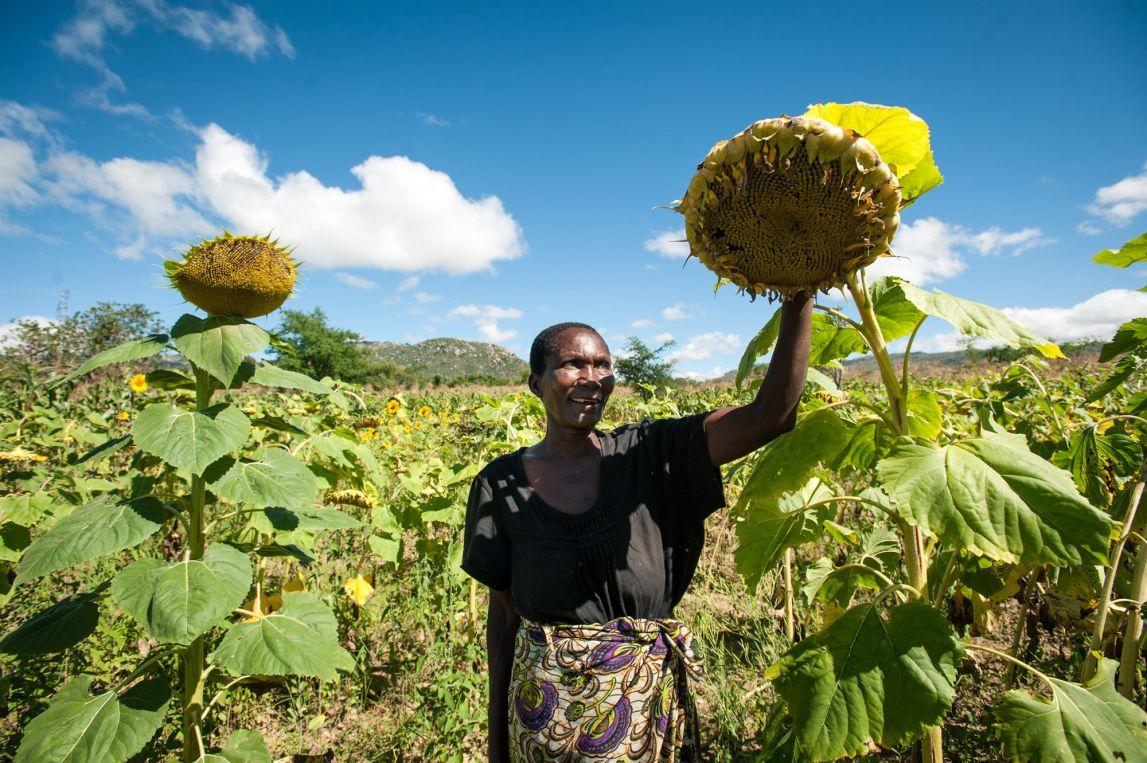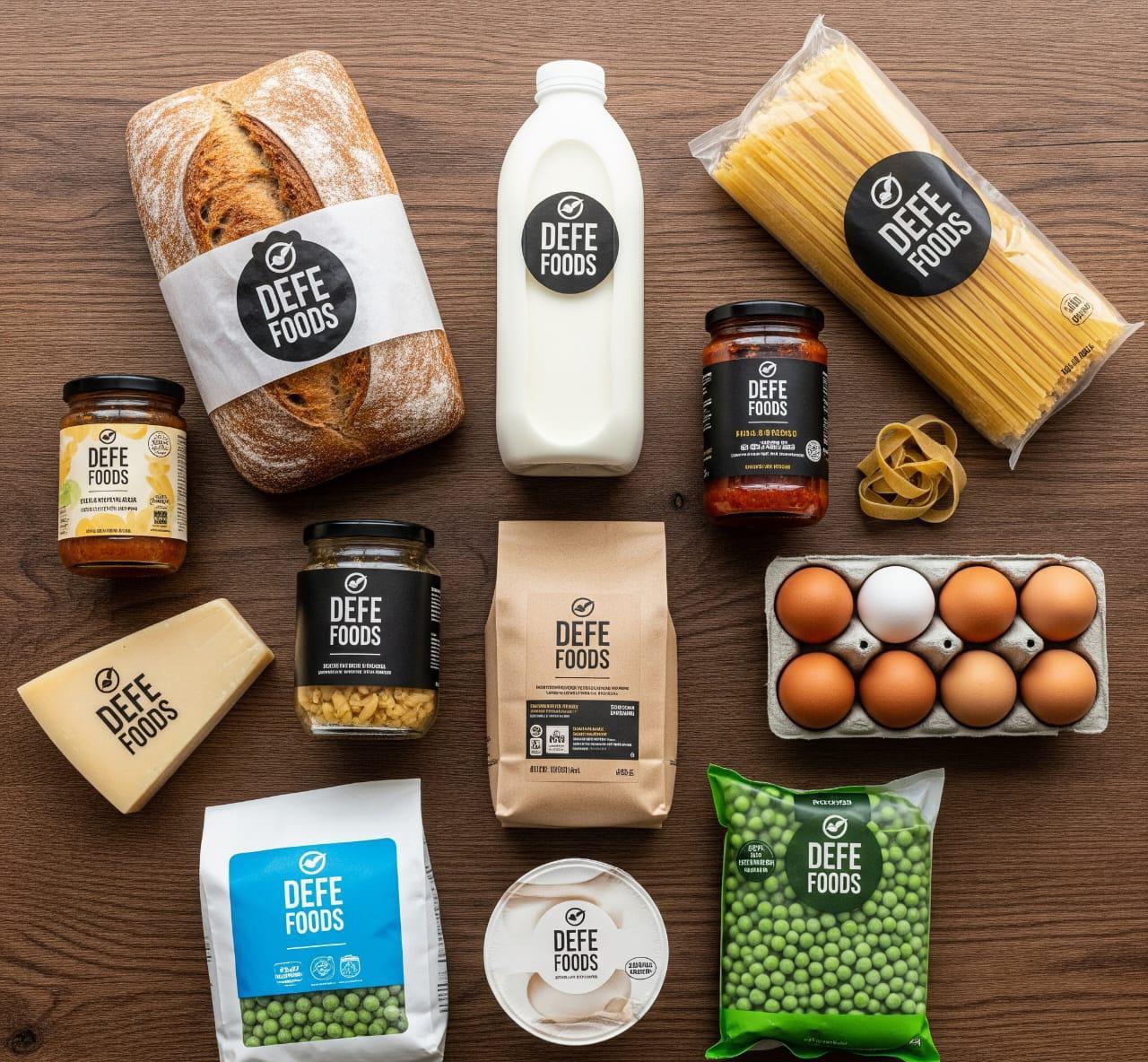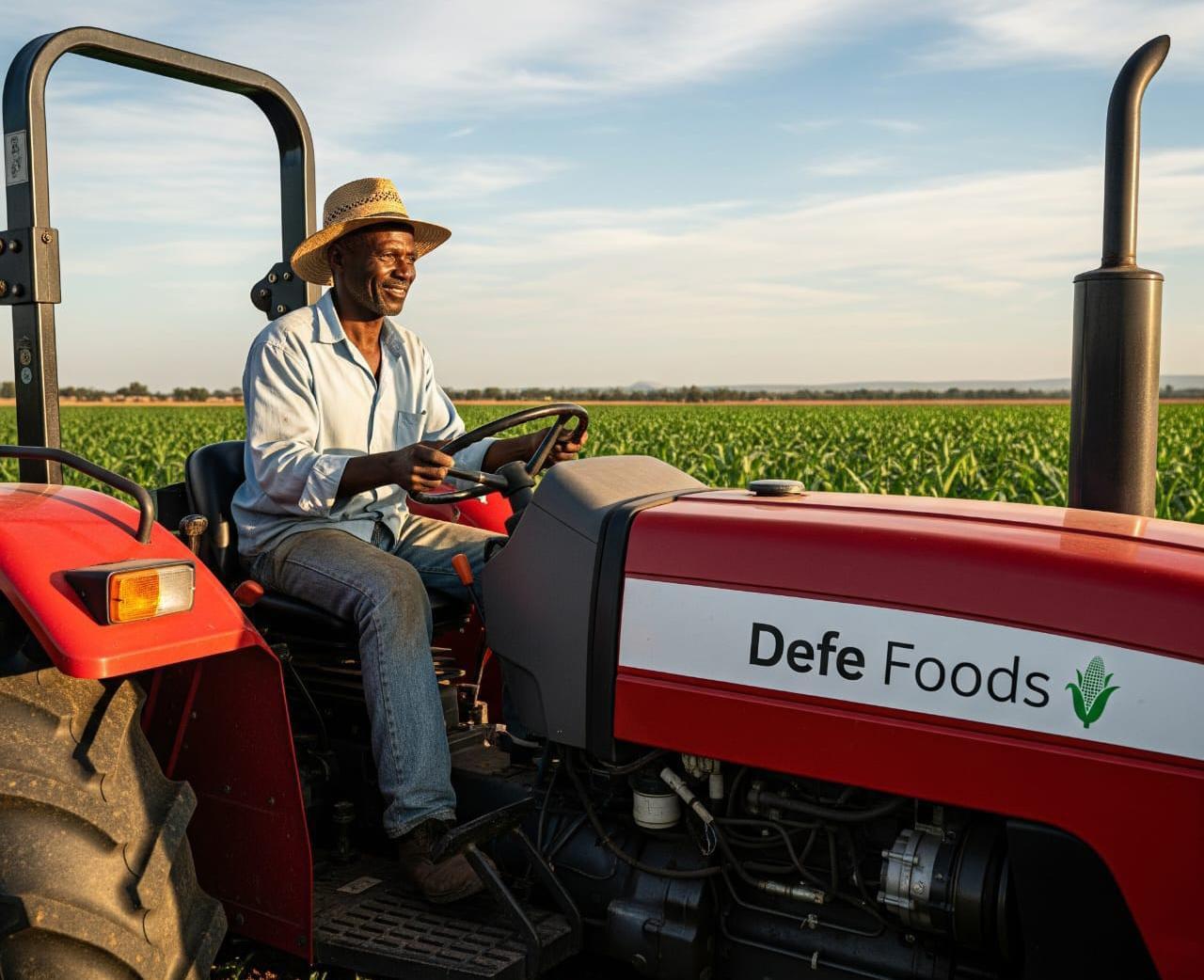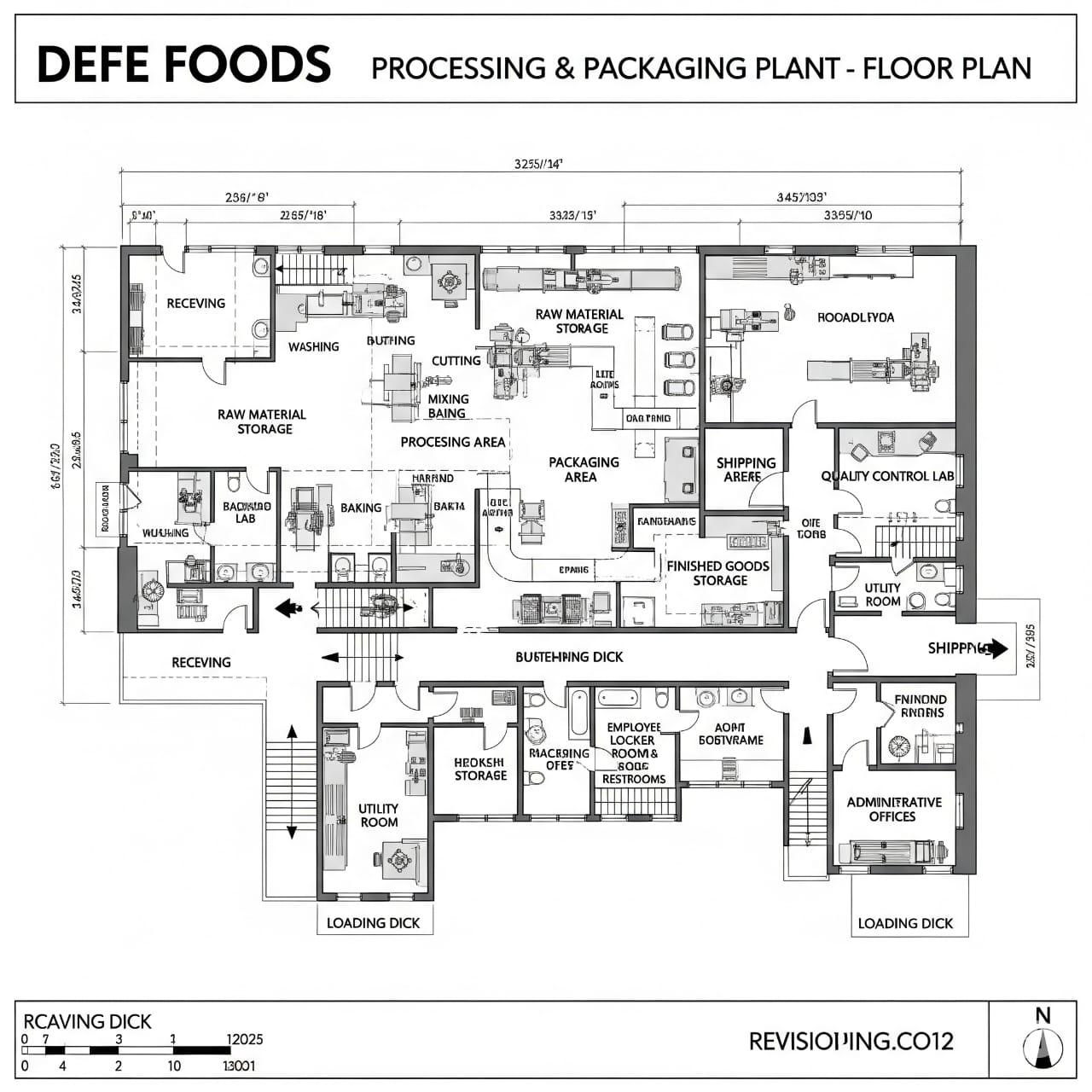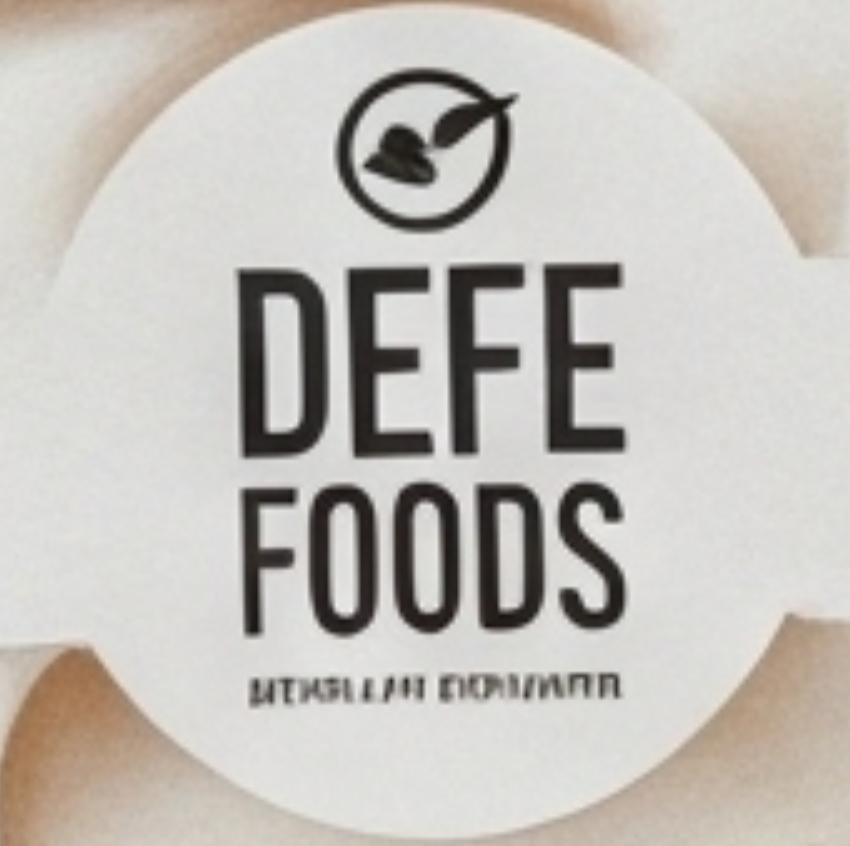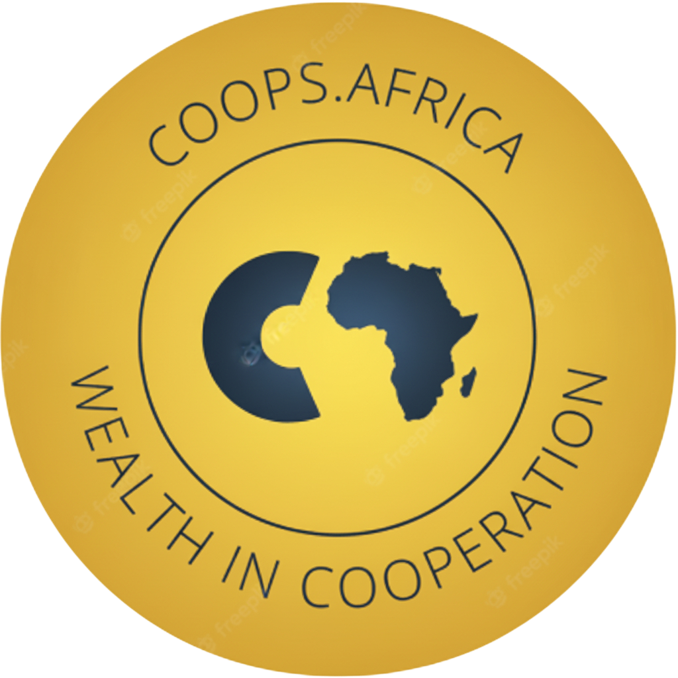Defe Foods Co-op Society is a farmer-owned agricultural producer cooperative based in Gokwe under Chief Mutendi and Headman Simbarashe Mutendi. Formed by local farmers to pool resources and create sustainable livelihoods, the co-op focuses on growing, processing, and packaging a variety of food products including sunflower cooking oil, maize meal, sugar beans, beef, and fish. With its base at Defe Dopota, the co-op is establishing a modern food processing and logistics hub complete with cold chain storage and delivery systems to serve the wider Gokwe area and expand into regional export markets. Built on cooperative principles, Defe Foods Co-op empowers its members by adding value to their produce, strengthening food security, and creating long-term economic opportunities for the community.
-
Co-op #: 0245007800001639
-
1 Les gens qui ont lié ça
-
8 Articles
-
6 Photos
-
Vidéos
-
Aperçu
-
Agriculture & Agri-Business
-
Defe Foods Agric Co-op Society Limited
-
+263773215784
Mises à jour récentes
-
The Defe Foods Processing and Packaging Plant is projected to operate at a scale that significantly transforms food supply in Gokwe and beyond. With a daily milling capacity of 50 tonnes of maize, the plant will produce approximately 15,000 tonnes of maize meal annually, packaged into retail-ready 10kg, 20kg, and 50kg bags for households and institutions. This alone creates a reliable supply for the wider Gokwe area while generating strong revenue streams for the co-op.
The sunflower oil line will process 8,000 tonnes of sunflower seed annually, yielding around 3 million litres of cooking oil. Packaged in 2-litre and 5-litre bottles, this output positions Defe Foods as a competitive player in both local and regional edible oil markets, where demand consistently outpaces supply.
On the protein side, the beef and fish divisions will handle approximately 1,500 head of cattle and 200 tonnes of fish per year. Processed and packaged under cold chain systems, these will be supplied to urban supermarkets, local butcheries, and regional export buyers. Complementing these lines, the plant will process 1,200 tonnes of sugar beans annually, cleaned, graded, and vacuum-packed for both local consumption and export.
At full capacity, the plant will generate an estimated US$6 million in annual revenues, with gross margins averaging 30–35% across the product lines. This provides a strong justification for the US$2.8 million debenture raise, as the facility not only pays for itself over the 5-year term but also secures attractive returns for investors while building lasting value for cooperative members.
The combination of diversified outputs, high-demand staple products, and integrated cold chain logistics ensures both resilience and profitability, making Defe Foods a strategically sound investment for community-driven agro-industrial growth.The Defe Foods Processing and Packaging Plant is projected to operate at a scale that significantly transforms food supply in Gokwe and beyond. With a daily milling capacity of 50 tonnes of maize, the plant will produce approximately 15,000 tonnes of maize meal annually, packaged into retail-ready 10kg, 20kg, and 50kg bags for households and institutions. This alone creates a reliable supply for the wider Gokwe area while generating strong revenue streams for the co-op. The sunflower oil line will process 8,000 tonnes of sunflower seed annually, yielding around 3 million litres of cooking oil. Packaged in 2-litre and 5-litre bottles, this output positions Defe Foods as a competitive player in both local and regional edible oil markets, where demand consistently outpaces supply. On the protein side, the beef and fish divisions will handle approximately 1,500 head of cattle and 200 tonnes of fish per year. Processed and packaged under cold chain systems, these will be supplied to urban supermarkets, local butcheries, and regional export buyers. Complementing these lines, the plant will process 1,200 tonnes of sugar beans annually, cleaned, graded, and vacuum-packed for both local consumption and export. At full capacity, the plant will generate an estimated US$6 million in annual revenues, with gross margins averaging 30–35% across the product lines. This provides a strong justification for the US$2.8 million debenture raise, as the facility not only pays for itself over the 5-year term but also secures attractive returns for investors while building lasting value for cooperative members. The combination of diversified outputs, high-demand staple products, and integrated cold chain logistics ensures both resilience and profitability, making Defe Foods a strategically sound investment for community-driven agro-industrial growth.0 Commentaires 0 Parts 1KB Vue 0 AperçuConnectez-vous pour aimer, partager et commenter! -
Defe Foods Processing and Packaging Plant is projected to operate at a scale that significantly transforms food supply in Gokwe and beyond. With a daily milling capacity of 50 tonnes of maize, the plant will produce approximately 15,000 tonnes of maize meal annually, packaged into retail-ready 10kg, 20kg, and 50kg bags for households and institutions. This alone creates a reliable supply for the wider Gokwe area while generating strong revenue streams for the co-op.
The sunflower oil line will process 8,000 tonnes of sunflower seed annually, yielding around 3 million litres of cooking oil. Packaged in 2-litre and 5-litre bottles, this output positions Defe Foods as a competitive player in both local and regional edible oil markets, where demand consistently outpaces supply.
On the protein side, the beef and fish divisions will handle approximately 1,500 head of cattle and 200 tonnes of fish per year. Processed and packaged under cold chain systems, these will be supplied to urban supermarkets, local butcheries, and regional export buyers. Complementing these lines, the plant will process 1,200 tonnes of sugar beans annually, cleaned, graded, and vacuum-packed for both local consumption and export.
At full capacity, the plant will generate an estimated US$6 million in annual revenues, with gross margins averaging 30–35% across the product lines. This provides a strong justification for the US$2.8 million debenture raise, as the facility not only pays for itself over the 5-year term but also secures attractive returns for investors while building lasting value for cooperative members.
The combination of diversified outputs, high-demand staple products, and integrated cold chain logistics ensures both resilience and profitability, making Defe Foods a strategically sound investment for community-driven agro-industrial growth.
Defe Foods Processing and Packaging Plant is projected to operate at a scale that significantly transforms food supply in Gokwe and beyond. With a daily milling capacity of 50 tonnes of maize, the plant will produce approximately 15,000 tonnes of maize meal annually, packaged into retail-ready 10kg, 20kg, and 50kg bags for households and institutions. This alone creates a reliable supply for the wider Gokwe area while generating strong revenue streams for the co-op. The sunflower oil line will process 8,000 tonnes of sunflower seed annually, yielding around 3 million litres of cooking oil. Packaged in 2-litre and 5-litre bottles, this output positions Defe Foods as a competitive player in both local and regional edible oil markets, where demand consistently outpaces supply. On the protein side, the beef and fish divisions will handle approximately 1,500 head of cattle and 200 tonnes of fish per year. Processed and packaged under cold chain systems, these will be supplied to urban supermarkets, local butcheries, and regional export buyers. Complementing these lines, the plant will process 1,200 tonnes of sugar beans annually, cleaned, graded, and vacuum-packed for both local consumption and export. At full capacity, the plant will generate an estimated US$6 million in annual revenues, with gross margins averaging 30–35% across the product lines. This provides a strong justification for the US$2.8 million debenture raise, as the facility not only pays for itself over the 5-year term but also secures attractive returns for investors while building lasting value for cooperative members. The combination of diversified outputs, high-demand staple products, and integrated cold chain logistics ensures both resilience and profitability, making Defe Foods a strategically sound investment for community-driven agro-industrial growth.0 Commentaires 0 Parts 1KB Vue 0 Aperçu -
The equipping plan for Defe Foods Co-op begins with empowering local farmers who supply the co-op to increase both their productivity and quality of produce. Individual farmers will be equipped with small-scale machinery and tools suited for on-farm use, such as oilseed presses for pre-processing sunflower, small maize shellers, and irrigation equipment. These are provided on an ownership or lease-to-own basis, enabling farmers to handle the first stages of processing and reduce losses before delivery to the central plant.
For larger and more capital-intensive equipment, the co-op will maintain a shared pool of resources accessible to members. This includes high-capacity tractors, combine harvesters, threshers, bean graders, and fishery equipment, all managed under a cooperative scheduling system. Farmers book access to this equipment based on seasonal crop cycles, ensuring fairness and efficiency. The co-op will also provide technical staff to operate complex machines, reducing the burden on individual farmers and guaranteeing optimal use.
This blended approach—personal equipment for routine needs and shared equipment for high-value tasks—allows the co-op to maximize productivity while keeping costs manageable for smallholder farmers. By pooling resources, farmers who could not individually afford advanced machinery gain access to tools that significantly boost yields and quality.
The debenture funding is transformative in this context, as it enables bulk purchase and maintenance of modern machinery without straining farmer finances. With equipment readily available, efficiency increases across all stages of production, from planting and harvesting to post-harvest handling. Output rises as farmers can cultivate larger plots, process crops faster, and deliver higher-quality produce to the processing plant. In turn, this strengthens the plant’s supply chain, increases volumes for processing, and boosts revenues for both farmers and the co-op as a whole.
The result is a cycle of growth where investment in equipment enhances farmer capacity, farmer supply sustains the processing plant, and the plant’s success secures returns for investors and long-term prosperity for the community.The equipping plan for Defe Foods Co-op begins with empowering local farmers who supply the co-op to increase both their productivity and quality of produce. Individual farmers will be equipped with small-scale machinery and tools suited for on-farm use, such as oilseed presses for pre-processing sunflower, small maize shellers, and irrigation equipment. These are provided on an ownership or lease-to-own basis, enabling farmers to handle the first stages of processing and reduce losses before delivery to the central plant. For larger and more capital-intensive equipment, the co-op will maintain a shared pool of resources accessible to members. This includes high-capacity tractors, combine harvesters, threshers, bean graders, and fishery equipment, all managed under a cooperative scheduling system. Farmers book access to this equipment based on seasonal crop cycles, ensuring fairness and efficiency. The co-op will also provide technical staff to operate complex machines, reducing the burden on individual farmers and guaranteeing optimal use. This blended approach—personal equipment for routine needs and shared equipment for high-value tasks—allows the co-op to maximize productivity while keeping costs manageable for smallholder farmers. By pooling resources, farmers who could not individually afford advanced machinery gain access to tools that significantly boost yields and quality. The debenture funding is transformative in this context, as it enables bulk purchase and maintenance of modern machinery without straining farmer finances. With equipment readily available, efficiency increases across all stages of production, from planting and harvesting to post-harvest handling. Output rises as farmers can cultivate larger plots, process crops faster, and deliver higher-quality produce to the processing plant. In turn, this strengthens the plant’s supply chain, increases volumes for processing, and boosts revenues for both farmers and the co-op as a whole. The result is a cycle of growth where investment in equipment enhances farmer capacity, farmer supply sustains the processing plant, and the plant’s success secures returns for investors and long-term prosperity for the community.0 Commentaires 0 Parts 1KB Vue 0 Aperçu -
0 Commentaires 0 Parts 710 Vue 0 Aperçu
-
The Defe Foods Processing and Packaging Plant is designed as a multi-line agro-processing facility equipped to handle a diverse range of crops and livestock products. The sunflower oil line will include seed cleaning machines, oil expellers, filtration units, and automated bottling equipment. For maize meal, hammer mills, dehullers, sifters, and packaging machines will be installed to produce both super and roller meal. Sugar beans will be processed using grading, cleaning, drying, and vacuum-packing units to ensure quality and shelf life. The beef and fish sections will incorporate cold storage rooms, meat processing equipment such as deboners, mincers, sausage fillers, and vacuum sealing systems, all linked to a cold chain distribution network.
The plant’s design emphasizes efficiency, food safety, and sustainability. Energy-efficient motors and solar power integration will reduce reliance on the national grid, while water recycling systems will minimize waste in cleaning and processing operations. Packaging lines will prioritize biodegradable and recyclable materials where possible, supporting environmentally responsible distribution. Waste from oilseed pressing, maize milling, and livestock processing will be converted into by-products such as animal feed and organic fertilizer, creating a circular economy that maximizes resource use.
By combining modern agro-processing technology with environmentally conscious design, the Defe Foods Processing and Packaging Plant will not only increase the value of local farm produce but also serve as a model of sustainable rural industrialization.The Defe Foods Processing and Packaging Plant is designed as a multi-line agro-processing facility equipped to handle a diverse range of crops and livestock products. The sunflower oil line will include seed cleaning machines, oil expellers, filtration units, and automated bottling equipment. For maize meal, hammer mills, dehullers, sifters, and packaging machines will be installed to produce both super and roller meal. Sugar beans will be processed using grading, cleaning, drying, and vacuum-packing units to ensure quality and shelf life. The beef and fish sections will incorporate cold storage rooms, meat processing equipment such as deboners, mincers, sausage fillers, and vacuum sealing systems, all linked to a cold chain distribution network. The plant’s design emphasizes efficiency, food safety, and sustainability. Energy-efficient motors and solar power integration will reduce reliance on the national grid, while water recycling systems will minimize waste in cleaning and processing operations. Packaging lines will prioritize biodegradable and recyclable materials where possible, supporting environmentally responsible distribution. Waste from oilseed pressing, maize milling, and livestock processing will be converted into by-products such as animal feed and organic fertilizer, creating a circular economy that maximizes resource use. By combining modern agro-processing technology with environmentally conscious design, the Defe Foods Processing and Packaging Plant will not only increase the value of local farm produce but also serve as a model of sustainable rural industrialization.0 Commentaires 0 Parts 1KB Vue 0 Aperçu -
0 Commentaires 0 Parts 702 Vue 0 Aperçu
Plus de lecture
